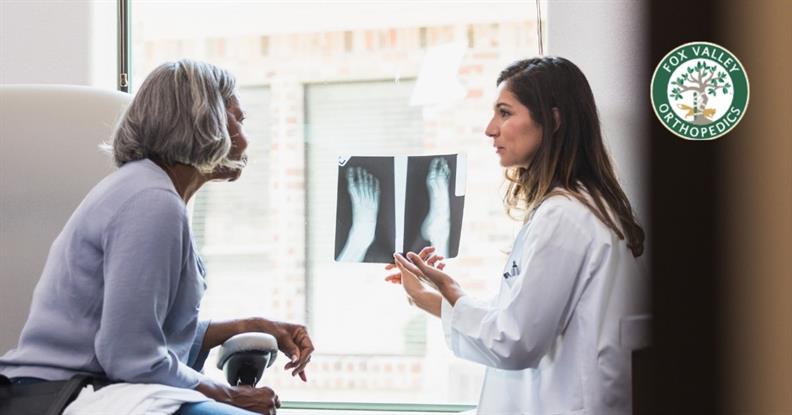When Joint Pain Is More Than Aging: Signs You May Need to See an Orthopedic Specialist
- Category: Joint Health
- Posted On:
- Written By: Fox Valley Orthopedics

Understanding Joint Pain: Beyond Aging
Feeling discomfort in your joints can bring more than just physical strain; it can also make routine tasks feel overwhelming. You might chalk it up to aging, but not all joint pain comes from growing older. Sometimes, it signals something more. Understanding what your body is telling you is the first step toward finding relief.
Signs That Joint Pain Might Be More Than Aging
Persistent Pain That Worsens Over Time
Aches and pains may come with age, but persistent discomfort that gets worse should raise a red flag. When pain intensifies rather than stays steady, it could point to conditions like tendonitis, bursitis, or progressive arthritis. These issues go beyond simple wear and tear and often need specific care to prevent further complications.
Swelling, Redness, and Warmth
Swollen, red, or warm joints are usually signs of inflammation, and they shouldn’t be ignored. Whether it’s rheumatoid arthritis, an injury, or even an infection, these symptoms often require medical attention. Left unchecked, they could lead to lasting damage. Acting early makes all the difference in protecting your joint health and mobility.
Common Causes of Joint Pain
Arthritis Types
We often think of arthritis as part of aging, but it’s more complicated than that. Osteoarthritis, caused by cartilage breakdown, is the most common type, while rheumatoid arthritis is fueled by autoimmunity. Gout, on the other hand, stems from crystal buildup in your joints due to high uric acid levels. Each type calls for different approaches to treatment, so understanding what’s going on is key.
Bursitis and Tendinitis
Inflammation of the bursa or tendons can make you feel like your joints are under siege. Bursitis often flares up after repetitive motions, while tendinitis arises from overuse or sudden injury. These conditions may not always be linked to aging but require timely attention to avoid long-term issues.
When Should You See a Specialist?
Sudden, Severe Pain
If joint pain comes on suddenly and intensely, it might signal something serious, like a fracture, torn ligament, or a quick escalation of an existing condition. Ignoring it could result in permanent damage. Seeking help right away ensures you get the right care before the problem worsens.
Visible Joint Deformities
Notice your joint shape changing? That’s your body signaling something’s wrong. Deformities aren’t just cosmetic; they often reflect advanced arthritis or traumatic injury. Early treatment can preserve joint function and reduce long-term pain.
How Diagnoses Are Made
Imaging and Lab Tests
Specialists rely on tools like X-rays, MRIs, and CT scans to see what’s happening inside your joints. These imaging techniques provide a clear picture of both minor and major issues, helping guide effective treatments. On the other hand, if your symptoms might stem from an autoimmune disease or gout, blood work can offer critical insights.
Practical Steps to Protect Your Joints
Exercise and Weight Management
Keeping your joints healthy starts with movement. Low-impact exercises like swimming or cycling reduce stiffness and strengthen muscles. Managing your weight also reduces strain, especially on load-bearing joints like your knees or hips. These small lifestyle changes have a big impact over time.
Joint-Friendly Nutrition
Your diet plays a role in how your joints feel. Anti-inflammatory foods like salmon and leafy greens can ease discomfort, while calcium and vitamin D-rich foods support bone health. Consistent, thoughtful eating habits promote long-term joint health from within.
Assistive Tools and Alternative Therapies
Sometimes tools like ergonomic furniture or braces can relieve stress on your joints. Massage, acupuncture, or similar therapies can also support pain relief and recovery, offering a more holistic approach.
Take Action for Your Joint Health
Fighting joint pain is about more than just managing symptoms. By addressing the root cause, you can rebuild strength, mobility, and confidence in your daily life. Don’t wait for pain to sideline you. Let Fox Valley Orthopedics help you out!
Call (630) 584-1400 today to connect with professionals who can create a plan tailored to you. Relief is closer than you think, and taking the first step can lead to lasting change.



